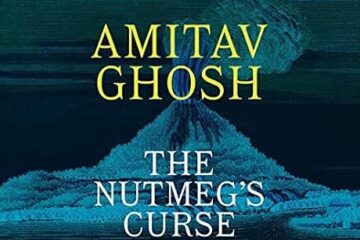

Crown, 2016
Review by Laura Hitt
Engineering Eden reminds readers of the long history that American lawmakers and conservationists have grappled with as they’ve worked to set aside sections of nature, otherwise known as National Parks, for preservation and recreation. Jordan Fisher Smith uses the history of Yellowstone National Park as an example of how divided the scientific community was (and still is) over the level and means of ecosystem management that are necessary to maintain our wild places.
The frame of this exploration of America’s conservation management philosophy is the death of Harry Walker, a young man from Alabama killed by a Yellowstone grizzly in 1972. Interweaving Harry’s story throughout, and the momentous trial that followed it, the narrative rushes and eddies into lawsuits, politics, and science, all with finesse and meticulous attention to detail.
Smith gives a thoroughly researched account of the National Park system and the subterranean ideologies that underpin it. The author himself, who worked as a park ranger for twenty-one years in four western states, describes conservation concepts in clear yet poetic terms. His prose is easy to read and full of elegant descriptions of historical figures and the natural world. It is also clear, from the narrative itself and from the twenty pages of notes and the extensive index, that he conducted careful and in-depth research.
One of the concepts explored in Engineering Eden is the idea, now a consensus in our modern conservation ethos, that wild animals should not be fed by humans. This has not always been the case, and Smith takes us back to the mid-twentieth century when grizzlies feasted on garbage in Yellowstone. This practice, of course, habituated bears to humans and resulted in a few jarring human fatalities, which led to many bears being hunted down and killed in the name of public safety.
“Bears are known for their long memories, part of a general tendency in nature to remember more than it forgets, in layers of stone, in the concentric rings of ancient trees, the migrations of elk, antelope, and trumpeter swans, even in our own recollections of the joys and sorrows of childhood.” In this passage, we see Smith’s respect for the intelligence of other species and natural systems, as well as for human emotions. These two concepts braid throughout the book as the author details the tragedies and triumphs of the scientists who work to understand and protect the bears, even as the narrative relates the stories of individual grizzlies themselves.
In a broader sense, Smith examines the fine line between the hands-on and hands-off approaches to wildlife management and restoration. There is debate about what role humans should play in protecting our wild places. Aldo Leopold, who Smith describes as a “scientist with a poet’s mind,” advocated for allowing the natural relationships and processes of ecosystems to occur unhindered by human ideas about what is “right” or “good.” Leopold realized that large predators, which were feared and hunted to extirpation all over the United States, were important for the health of prey species such as deer and elk. He also recognized that fire was a key component of healthy ecosystems. These ideas, radical at the time, changed the way we think about conservation and wildness. In Engineering Eden, Smith notes that Leopold’s son, Starker Leopold, was a key player in the lawsuit over Harry Walker’s death and in the management of Yellowstone grizzlies.
“Human civilization has a simplifying effect on ecology. From the tallgrass prairie of the Great Plains, we made wheat fields. From the rich marshes of Florida, we made tomato fields. Located in one of the more remote areas of the West, developed late, and saved early, Yellowstone was not simplified.” Smith pays homage to this bio-complexity by refusing to simplify either side of the debate. By exploring our past struggles with conservation, Smith reminds us that even if we don’t have all the answers for our current ecological questions, it’s important to keep moving forward with a healthy dose of humility.
In the book’s “Afterword,” Smith identifies climate change as the ultimate example of the need for balancing heavy management with leaving nature to its own devices. On the one hand, he says, assisted migration of animals and plants is an important way to help other species survive in this era. On the other hand, approaches like these must be done with humility because, after all, climate change is anthropogenic and to assume that we know exactly how to prevent further harm is the kind of hubris that got us into this situation.
Reviewer Bio





